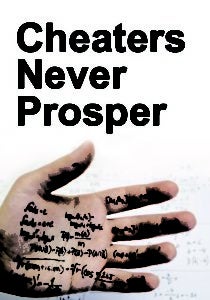
Cheaters Never Prosper
This post was updated on October 10, 2019.
“How do you prevent cheating in online courses?” Since 1995, when the ASU Online instructional design team first started working with faculty to develop online courses, this is one of the most common questions we’ve received.
At ASU Online, our aim is to preserve the integrity of our students, and the credibility and rigor of our degree programs, which requires keen attention to academic integrity.
We provide the following resources in an effort to minimize opportunities for cheating and promote academic integrity in online courses.
Academic Integrity Website
https://provost.asu.edu/academicintegrity
Your first stop for researching ASU policies on academic honesty should be the Academic Integrity website from the ASU Office of the University Provost. Here you’ll find a number of resources for faculty and students, including the ASU Student Academic Integrity Policy and a series of guides designed to help students avoid integrity violations.
Academic Integrity Video
We created this video to help define expectations for academic integrity and to outline some of the techniques and technologies we use in our online courses for student identity verification and ensuring the originality of assignment submissions.
Cheaters Never Prosper Booklet
ASU Online believes the best way to minimize cheating and promote integrity is by using a combination of pedagogical, technological and community-building strategies. In 2010, we first started distributing this quick-reference booklet for faculty, which outlines 46 of these strategies. By using a combination of techniques from each of the three categories, we can build a solid foundation for integrity in online courses.
Academic Integrity Tool Examples
Respondus LockDown Browser and Respondus Monitor: The Respondus LockDown Browser prevents students from printing, going to another URL or accessing other applications while taking an exam. Respondus Monitor records students via webcam while they take exams, for later review by the instructor.
Students
Instructors
Course Activities
In addition to the resources above, we also like to stress the importance of academic integrity by incorporating the theme into course activities.
In the Master of Liberal Studies program, for example, students are asked to read ASU’s Academic Integrity Policy and then respond to the following questions: Is it fair? Is it warranted? Is it clear? Do you have any remarks about its content? If you were on the committee to amend the policy, what changes would you make, if any? After engaging in the discussion, students write a story or describe a memory that illustrates an experience they have had with cheating. This is a good example of a community-building strategy for promoting academic integrity.
We encourage faculty to design similar exercises in their coursework.
Research on Cheating in Online Courses
There’s a common perception that cheating is more prevalent in online courses than traditional campus courses. However, studies such as those listed below have found that cheating is not more prevalent online than in traditional classrooms (Spaulding, 2009; Grijalva, Kerkvliet & Nowell, 2006), and some suggest that there may actually be less cheating happening in the virtual classroom (Watson & Sottile, 2010; Stuber-McEwen, Wiseley & Hoggatt, 2009).
Perceptions of Academic Honesty in Online vs. Face-to-Face Classrooms Spaulding, 2009
Academic Honesty and Online Courses Grijalva, Kerkvliet & Nowell, 2006
Cheating in the Digital Age: Do Students Cheat More in Online Courses? Watson & Sottile, 2010
Point, Click, and Cheat: Frequency and Type of Academic Dishonesty in the Virtual Classroom Stuber-McEwen, Wiseley & Hoggatt, 2009
We suspect that the ever-expanding tools and resources within the online classroom (which may not be as accessible in the traditional classroom), in addition to great instructional design and enthusiastic faculty involvement, greatly reduce the potential for academic dishonesty, and help ensure that all academic work results from individuals’ own intellectual efforts.
Co-written by Marc Van Horne, DeAnna Soth, Kena Ray


Leave a Comment
Your email address will not be published. Required fields are marked *